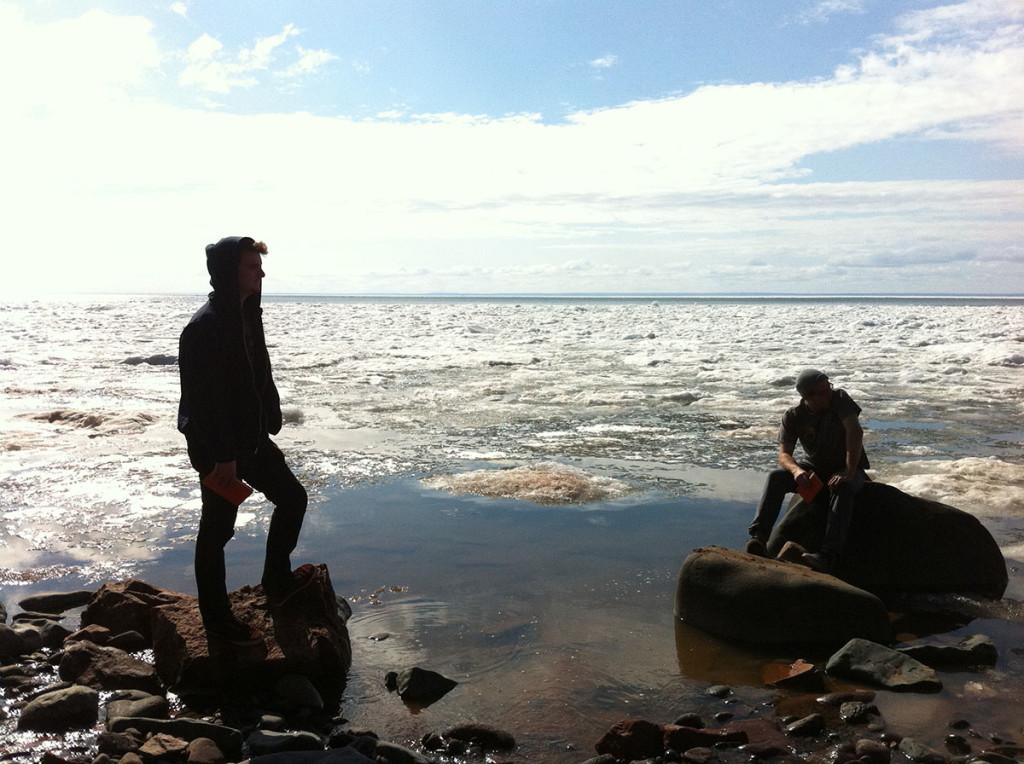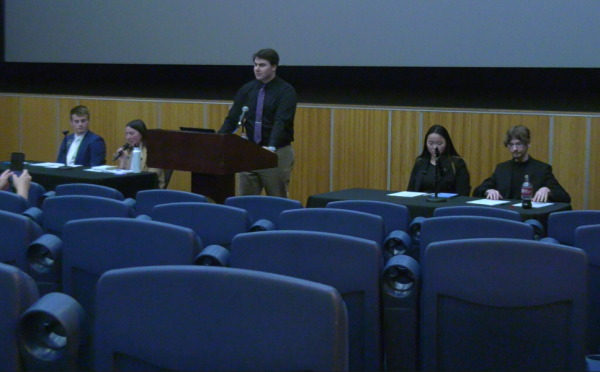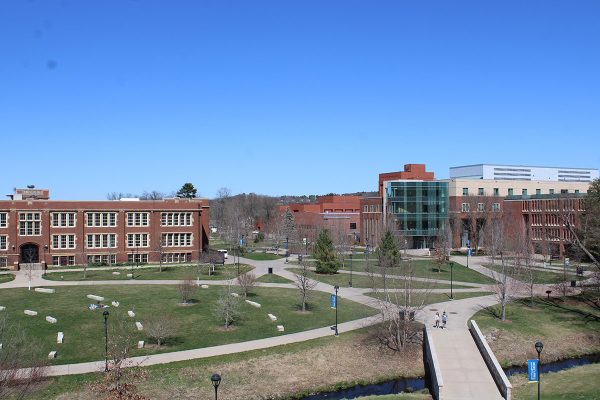Three U.S. senators to head Great Lakes restoration bill
Goal is to clean up the region and set a precedent for clean waterways everywhere
Photo by Ryan Alme
Simon Dowling, left, and Mattheus De Waard enjoy Lake Superior on a geography field trip last spring.
February 18, 2015
A bipartisan band of Senators introduced a bill, Feb. 12, aimed to scrub clean the Great Lakes and surrounding shorelines.
Sen. Tammy Baldwin, D-Wis., Debbie Stabenow, D-Mich., and Mark Kirk, R-Ill., introduced The Great Lakes Ecological and Economic Protection Act, which seeks to monitor invasive species, speed sediment cleanup and improve water quality, according to a press release.
“As a member of the Senate Budget and Appropriations Committees, I will continue my work across the aisle to ensure that Wisconsin’s priorities and our Great Lakes are protected as Congress writes bipartisan budget legislation,” Baldwin said in a statement.
GLEEPA could bring in $80 to $100 billion in economic benefits across the region, according to a release from Baldwin’s office.
According to a University of Michigan study, 20 percent of the world’s fresh water comes from the five lakes, Superior, Michigan, Ontario, Erie and Huron. About 30 million Americans get their drinking water from Great Lakes.
UW-Eau Claire biology professor Todd Wellnitz said prior cleanup efforts targeted industrial pollution, but much pollution now comes from non-point sources like agricultural runoff that seeps into watersheds.
“That’s a little tougher to control and regulate,” Wellnitz said. “Trying to get a handle on that is going to be very important.”
GLEEPA also aims to regulate invasive species. David Lonzarich, Eau Claire biology professor who studies aquatic life, said invasive species, like Asian carp, live in Lake Superior drainage and could migrate to other Great Lakes.
That means Asian Carp could affect populations of prize fish like pikes, muskies and largemouth bass, he said.
“Once they get in, there’s nothing that can be done,” Lonzarich said. “You have to shut the door right away.”
Lonzarich hopes GLEEPA will set a national precedent for restoring waterways, although he’s doubtful politicians from all spectrums could rally around the issue, he said.
“Whatever aggressive protections could be instituted, developed and given Federal government support … I’m all in favor of this,” he said.
Robby Riley, senior, makes an annual pilgrimage to fish Lake Superior with his father every summer.
“I fear the Asian carp will force other game fish to be short on food as their feeding habits overlap with the fish you want to try and catch,” he said.











